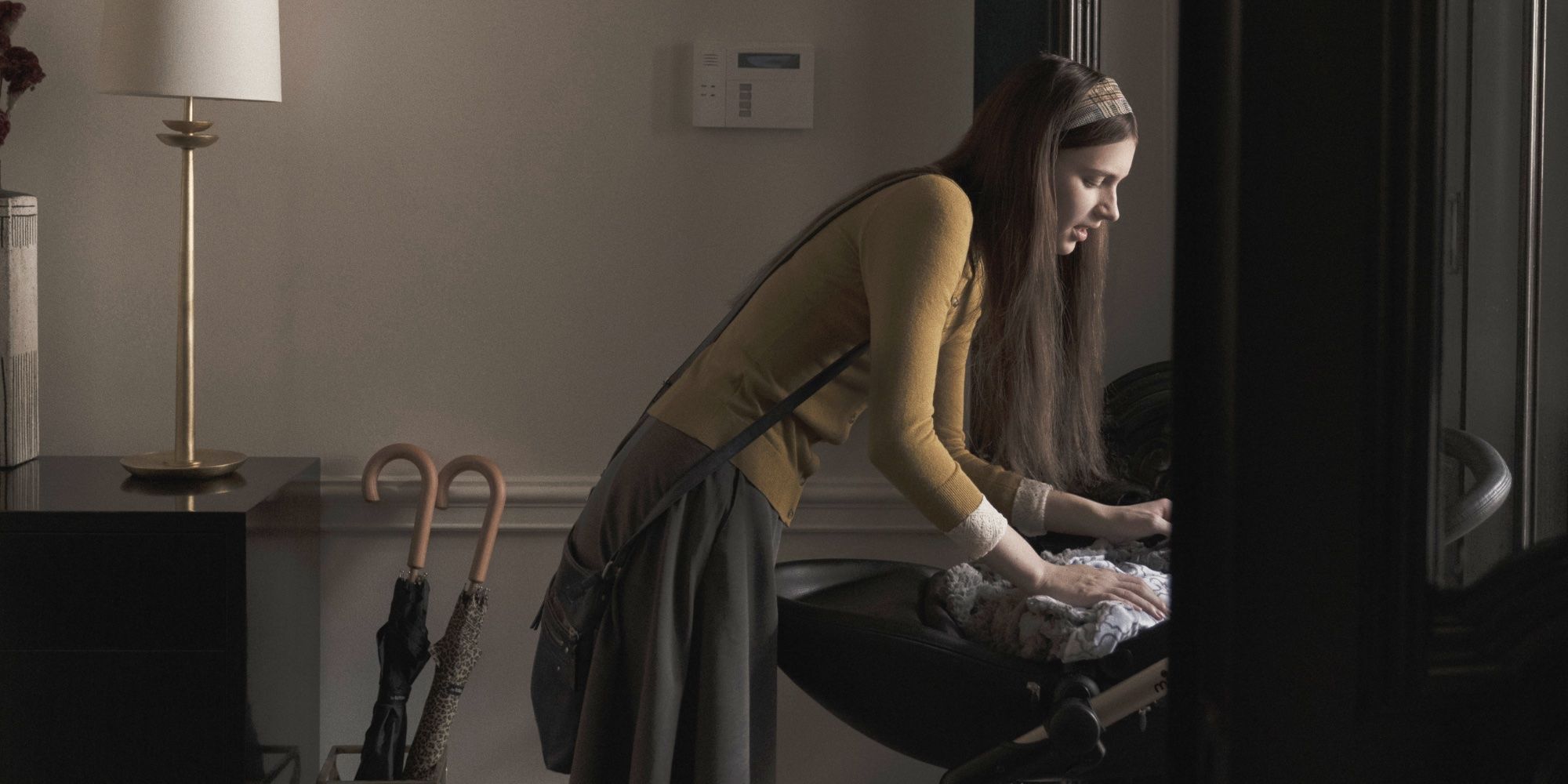One of the best things about Apple TV+’s Servant is that it never quite lets the viewer get comfortable watching. It’s the sort of series that excels at making every moment as discomfiting as possible. This effort, in turn, makes every episode an anxiety-inducing tour of the kinds of tensions common in most relationships — both romantic and domestic — while also playing around with an employer/employee dynamic, where the balance of power is often absurdly lopsided in favor of the person signing the checks.
As the title suggests, Servant is the story of a domestic worker, though one with a twist, which shouldn’t be surprising considering it’s executive produced and its first episode is directed by M. Night Shyamalan. Created and written by Tony Basgallop, the series is fixated on themes of power, privilege, and class, and how fragile those ideas can be when an unpredictable variable is introduced into a particular equation. Furthermore, the series takes advantage of just how uncomfortable it can be to welcome a stranger into your house, one whose presence not only offsets every routine you might have, but also upends your sense of privacy. At the same time, Servant cleverly understands the desire most people have use politeness as a way to counteract any discomfort and potential embarrassment in dealing with a stranger.
The premiere starts the series off on a darkly funny note as it introduces the Turners, Sean (Toby Kebbell) and Dorothy (Lauren Ambrose), a young, well-to-do couple in Philadelphia who’ve hired a live-in nanny, Leanne (Nell Tiger Free), sight unseen to look after their young son when Dorothy returns to work. Basgallop has a keen ear for the sort of banal dialogue associated with a certain kind of propriety as the Turners welcome Leanne into their home and attempt to set certain boundaries with regard to the aforementioned employer/employee dynamic, while also confusing those boundaries by insisting Leanne think of their home as her home.
Shyamalan capitalizes on the idea of personal boundaries being invaded by using the camera to invade the actors’ personal space. Exchanges between characters - particularly Dorothy and Leanne - are accentuated with long, lingering shots on the actors’ faces, most of which are much too close for comfort. Ambrose, in particular, is attuned to Shyamalan’s intent and as such amplifies her performance for maximum discomfort, often by staring intently into the camera as though peering directly into the viewers’ soul. She is uniquely suited to maintaining the kind of manic energy roiling just beneath the surface of every scene, and which serves as an unsettling counterpoint to the bewilderingly staid demeanor of the couple’s mysterious young nanny.
This literal in-your-face approach makes Servant tonally difficult to pin down. Its dark humor and tension are largely the byproduct of Leanne’s presence in the home, but those elements are also connected to the couple's profound grief over having recently lost their child. It’s a bit like someone breaking the tension at a funeral by telling a joke. Apple has made no secret about the lifelike doll used by Dorothy as a means of coping with the death of her infant son, Jericho, but the manner in which the show reveals the truth is shocking nevertheless. It’s also disturbingly funny in a way that will make viewers want to watch it again, but with someone who hasn’t seen it, so they can witness their reaction.
Servant is essentially a domestic horror series set in a madhouse, and Kebbell’s Sean, a self-described “bon vivant” and consulting chef (who strangely works from home), is either the only sane person in a world gone mad or the maddest of them all. Shyamalan’s reputation is such that viewers would likely be prone to thinking the latter were it not for the presence of Rupert Grint’s Julian, Sean’s WASP-y brother-in-law and one of few people who knows about Jericho’s death. As a supporting character, Julian serves a number of purposes: he’s Sean’s confidant, he validates Sean’s concerns and therefore grounds the story in some kind of reality that suggests it’s not all in Sean’s head, and he’s potential fodder for the show’s intentions as far as proving its horror bona fides are concerned.
Though he only directs two episodes in the season, the series succeeds due to its connection to Shyamalan (both good and bad) and the ways in which he establishes and plays with the wide tonal variances inherent to the story. Servant could have been a more straightforward tale about grief and power and class differences, but, to its credit, the series wants to be something a little different, something that excels in making its audience as uncomfortable as possible, while still making them want to come back for more. It’s a masochistic show, to a certain degree, one that will make most viewers grateful each episode only clocks in at around 30 minutes. Strangely, though, Servant’s mysteries and its sense of purpose with regard to uncovering and having fun with them will also have plenty of people eager to see what happens next.
Servant premieres its first three episodes on Friday, November 28 only on Apple TV+.



